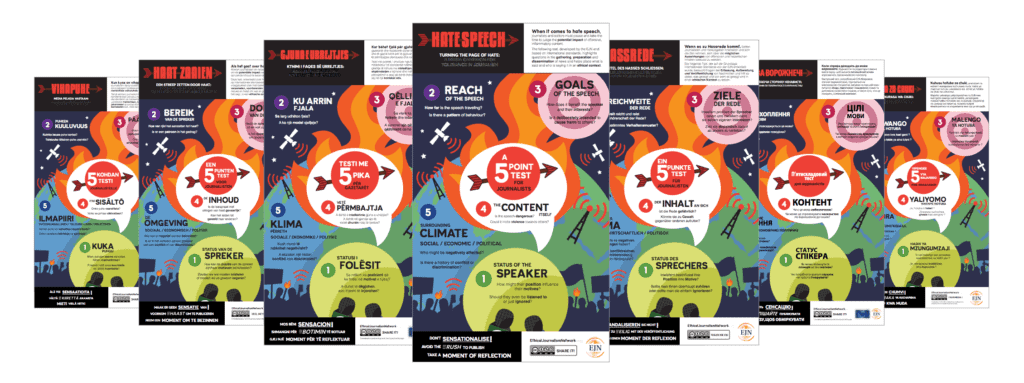Muslims in the media
“Muslims in the media: Challenging Narratives, Strengthening Partnerships, Engaging Communities”
30th May 2017, at 09:00 in the European Parliament
The OSCE Office for Democratic Institutions and Human Rights (ODIHR), European Parliament Anti-Racism and Diversity Intergroup (ARDI) and European Commission (EC) organised a meeting on “Muslims in the media: Challenging Narratives, Strengthening Partnerships, Engaging Communities” on 30th May 2017, hosted by the Canadian mission to the European Union.
This discussion brought together members of European parliament, media professionals, researchers, Muslim community representatives and other interested parties to analyse and discuss the coverage, portrayal and participation of Muslims in the media, including gender and ethnic diversity.
The event was used to test the EJN’s plans to work with ODIHR and the European Union Fundamental Rights Agency (EUFRA) to hold a series of workshops on how Muslims and refugees are portrayed in the media, which will produce recommendations on how coverage can be made more inclusive and accurate. It is hoped that a model can be established that can later be reproduced in other OSCE countries.
Following the meeting the EJN Director Aidan White wrote:
At two meetings in Brussels last week, the EJN joined discussions involving European Union policymakers, Muslim leaders and European-wide civil society campaigners on the often fraught relations between media and Muslims. There were ringing complaints of bias, intimidation and a spike in hate crimes against Muslims following recent terrorist violence.
The EJN argues strongly for careful and sensitive reporting of terrorism which is often linked to Islamic extremism, but we are against acts of self-censorship that undermine the peoples’ right to know about the circumstances of terrorism when it is inspired by a tiny minority of religious extremists.
 As part of our work the EJN has developed a five-point test for journalists to help them identify hate speech and we call for media to avoid bias and discrimination.
As part of our work the EJN has developed a five-point test for journalists to help them identify hate speech and we call for media to avoid bias and discrimination.
We promote journalism at its best, and in Brussels we highlighted how the British press praised the role played by Muslims in the care and treatment of the victims of terrorism, particularly following the mass killing at a pop concert in Manchester.
But this is not just a British challenge. In response to attacks in London, Paris, Stockholm and Berlin the EJN is now working on plans to develop fresh cross-border dialogues that will help media ensure the terrorism story includes all sides of the Muslim community.
The EJN has been asked by ODIHR, the human rights office of the Organisation for Security and Co-operation in Europe, to help develop a programme for new dialogues between media and Muslims.
At the Brussels meetings, held in the European Parliament and at the mission of the Canadian government, the EJN proposed
- organising a model workshop for Muslim groups and media leaders on reporting challenges;
- targeted discussions on media reporting of Muslim women and young people;
- gathering and disseminating information on good media practice; and
- promoting dialogues on combating hate speech between editors and journalists who work for religious media.
The British government’s bullish response to internet voices spreading hate and incitement to violence will add to the growing calls for internet companies such as Google and Facebook to recognise that they have publisher responsibilities and that they need to act quickly to take down abusive communications.
As the EJN has argued before, this is a responsibility that these companies must take on, but it would be better if they do so voluntarily without being strong-armed by the law.
There will be much political rhetoric about “balancing” free speech rights and public security, but there are dangers that if new laws are used to force internet companies into line it may lead to new pressure on journalists.
Just as it is vital for journalists to make sure they do not contribute to an expected backlash against Muslims, it is essential that media are free to report without the threat of censorship through anti-terrorism legislation.